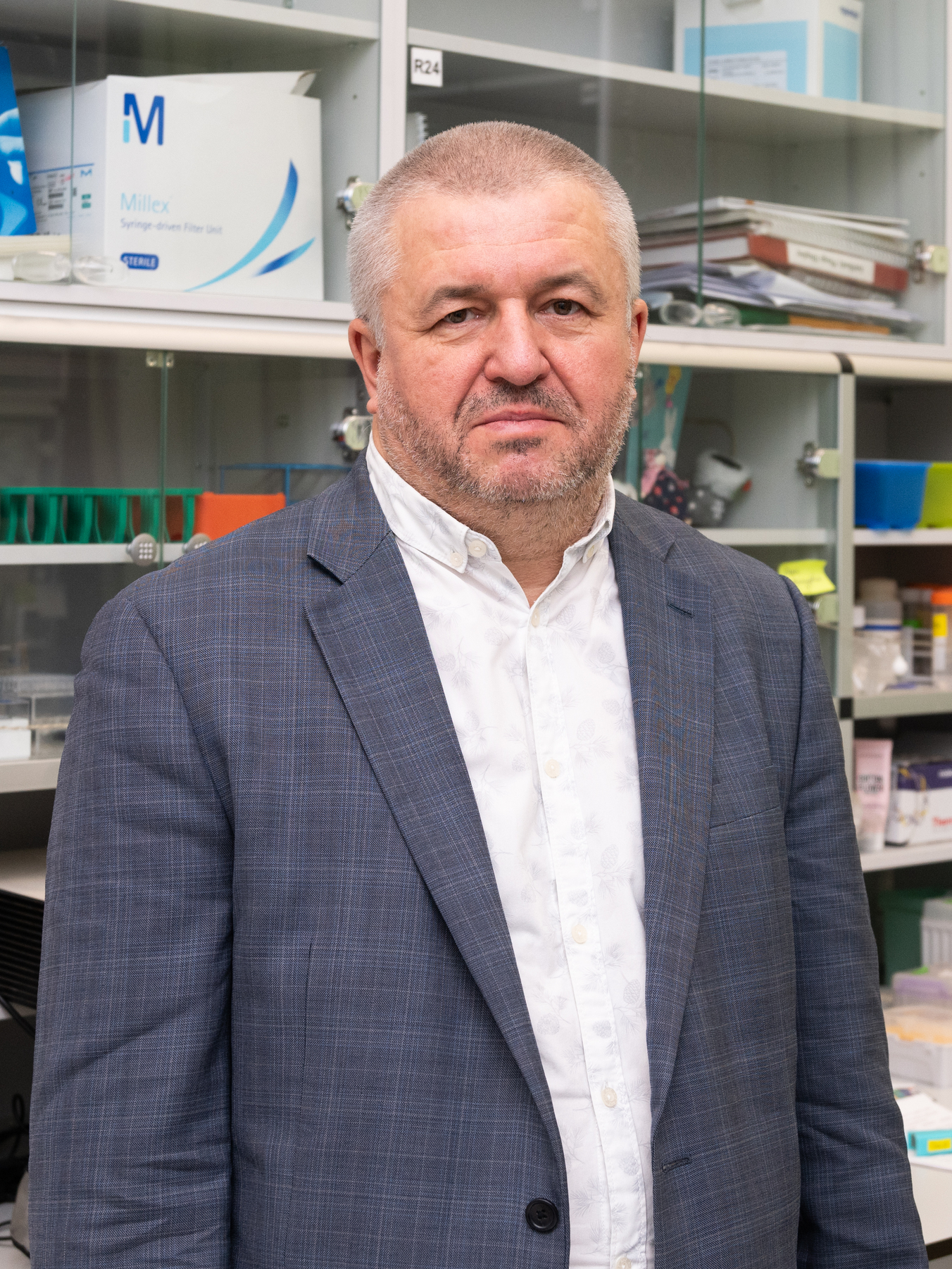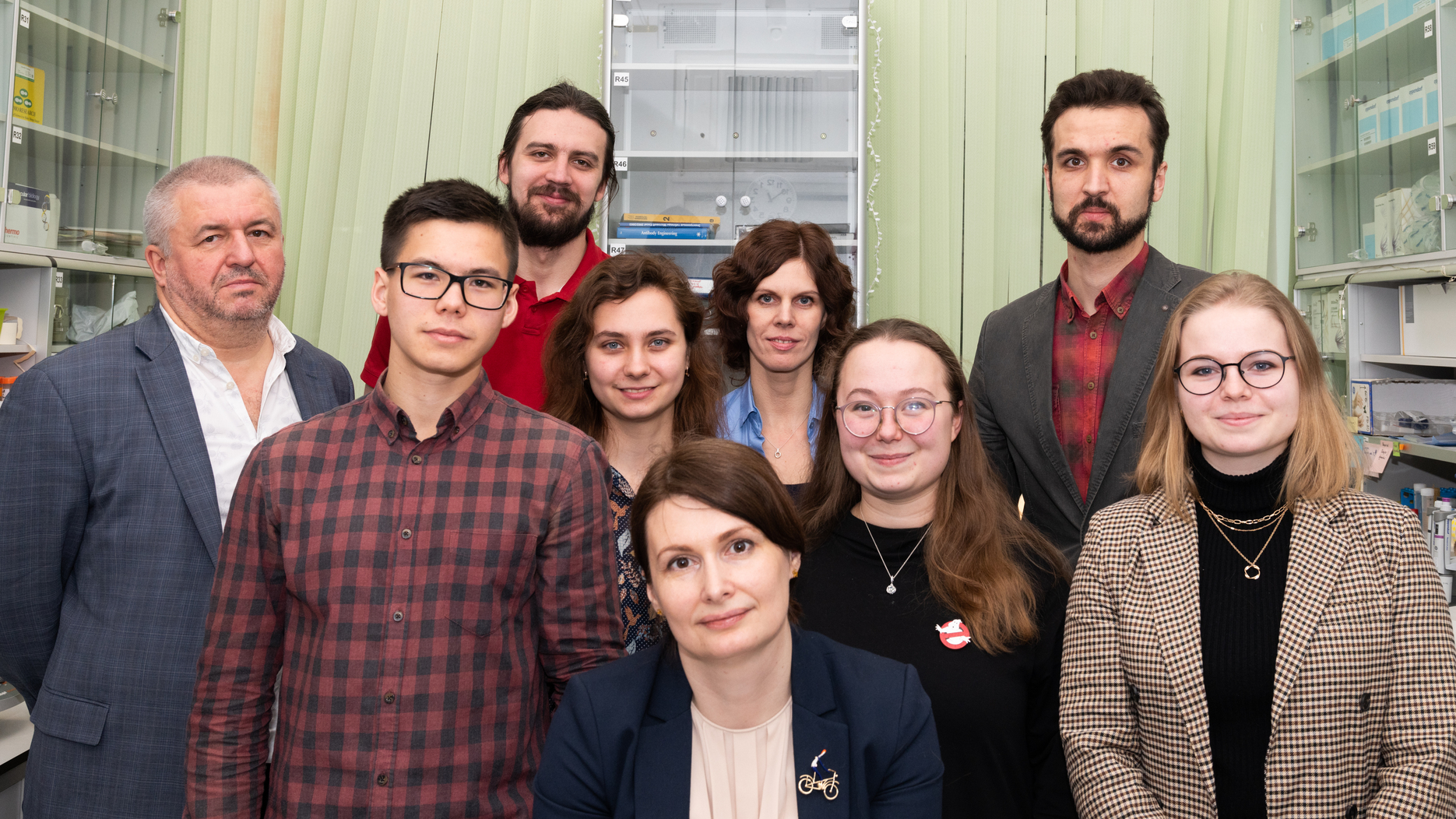Immunochemistry as a tool of fundamental and applied investigations

For more than 25 years, the laboratory of immunochemistry has studied the biochemical and clinical properties of protein markers of different human pathological states. Our main efforts are devoted to the research of proteins associated with cardiac diseases such as myocardial infarction, unstable angina and cardiac failure. In the last few years, our research was focused on such proteins as cardiac troponins I and T, FABP, PAPP-A, BNP, IGFBP-4, D-dimer, and other widely used markers. Based on the rigorous study of protein biochemical properties, new ways of protein quantitative determination in patient’s blood are established in the laboratory. We widely use different immunochemical methods (affinity chromatography, ELISA, immunohisto- and immunocytochemistry, Western blotting, ECL and others) based on the utilization both monoclonal and polyclonal antibodies. Being one of the most high-sensitive and specific instruments of the modern biochemistry, antibodies enable the investigation of macromolecules presented in different human tissues in very low (nano- of even picomolar) concentrations.
Besides immunochemical methods, many modern biochemical techniques such as High Pressure Liquid Chromatography, Surface Plasmon Resonance, Mass Spectrometry and others are utilized in the laboratory. Different genetic engineering and cell culture techniques are also widely used.
Currently, one of the most interesting lines of development is obtaining of recombinant antibodies (full-sized antibodies as well as antibody fragments) in prokaryotic and eukaryotic expression systems. The other direction of research is the increase of antibody affinity by the modification of the amino acid sequence of a given antibody. We also work on the development of the artificial bi- and tri-specific antibodies.
Key publications
- Serebryanaya DV, Adasheva DA, Konev AA, Artemieva MM, Katrukha IA, Postnikov AB, Medvedeva NA, Katrukha AG. IGFBP-4 Proteolysis by PAPP-A in a Primary Culture of Rat Neonatal Cardiomyocytes under Normal and Hypertrophic Conditions. Biochemistry (Mosc). 2021 Nov;86(11):1395-1406. doi: 10.1134/S0006297921110043. PMID: 34906040.
- Konev AA, Kharitonov AV, Rozov FN, Altshuler EP, Serebryanaya DV, Lassus J, Harjola VP, Katrukha AG, Postnikov AB. CT-IGFBP-4 as a novel prognostic biomarker in acute heart failure. ESC Heart Fail. 2020 Apr;7(2):434-444. doi: 10.1002/ehf2.12590. Epub 2020 Jan 22. PMID: 31967738; PMCID: PMC7160480.
- Katrukha IA, Katrukha AG. Myocardial Injury and the Release of Troponins I and T in the Blood of Patients. Clin Chem. 2021 Jan 8;67(1):124-130. doi: 10.1093/clinchem/hvaa281. PMID: 33418589.
- Feygina EE, Artemieva MM, Postnikov AB, Tamm NN, Bloshchitsyna MN, Medvedeva NA, Katrukha AG, Semenov AG. Detection of Neprilysin-Derived BNP Fragments in the Circulation: Possible Insights for Targeted Neprilysin Inhibition Therapy for Heart Failure. Clin Chem. 2019 Oct;65(10):1239-1247. doi: 10.1373/clinchem.2019.303438. Epub 2019 Jul 15. PMID: 31307994.
Group members
| Group leader | Professor, A.G. Katrukha |
| Research fellow | I.A. Katrukha |
| Senior staff scientists | D.V. Serebryanaya M.V. Sudnitsyna |
| Research assistant | E.A. Akinfeeva |
| Post-graduate students | D.A. Adasheva A.I. Zabolotsky N.S. Ryabkova |
| Graduate students | G.A. Dia, M.A. Bazovkina |
